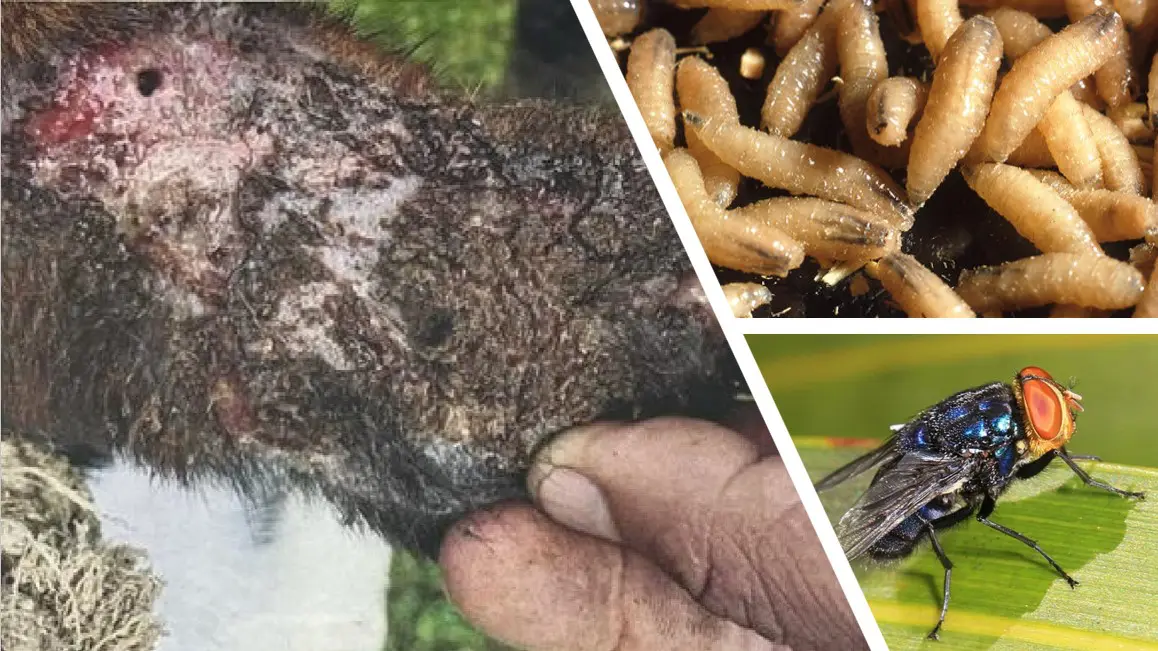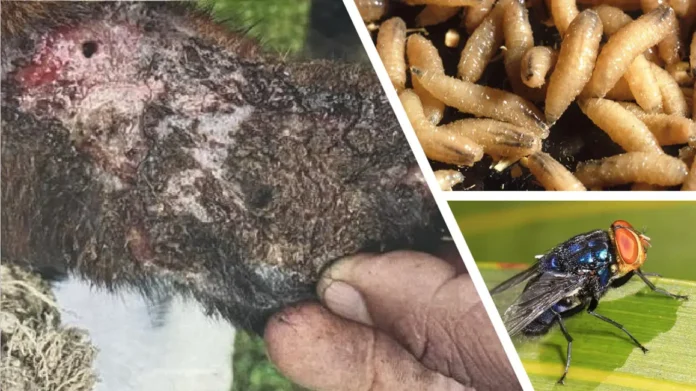The Ministry of Health and Wellness (MOHW) has confirmed the first human cases of New World Screwworm infection in Belize. The first case was confirmed on August 18th, followed by a second case the next day. Both patients are from the Cayo District.
According to MOHW, the first patient, a 21-year-old male from Benque Viejo del Carmen, sought medical attention at the San Ignacio Community Hospital on August 15th. Samples were submitted in collaboration with the Belize Agricultural Health Authority (BAHA) and confirmed to be positive. The patient is undergoing treatment and responding well to it.
MOHW’s Vector Control Chief of Operations, Kim Bautista, explained that treatment depends on the severity of the infestation. “The treatment of New World Screwworm is dependent in terms of the severity of the infestation, but primarily, the treatment tends to be Ivermectin and antibiotics… not to control the larvae but to prevent what we would refer to as secondary infections as a consequence of the wound,” Bautista said. He added that larvae cause tissue damage as they feed, making timely treatment crucial. Once administered, Ivermectin prevents the development of new larvae, while antibiotics reduce the risk of serious infections.
The second case involves a 60-year-old patient from Camalote Village, who is receiving care at the Western Regional Hospital in Belmopan.
According to the Government of Belize, more than 300 cases of New World Screwworm have been confirmed nationwide, the majority in animals. The highest numbers are in the Cayo and Toledo Districts, though cases are increasing in the Belize and Stann Creek Districts. Dr. Roxanna Alvarez, Director of Animal Health at BAHA, reported that the sharp rise is due mainly to infestations in pets, particularly dogs. She also confirmed two cases of howler monkeys bitten by dogs in Cayo. Further research is needed to determine whether screwworm is present in wildlife.
The New World Screwworm is a flesh-eating parasite first detected in Belize’s livestock in the Toledo District in December 2024. The screwworm fly lays eggs in open wounds of humans and animals. The larvae feed on living tissue, causing severe pain, tissue damage, and, if untreated, life-threatening infections.
MOHW reminds the public that prevention relies on proper wound care to avoid exposure to the parasite. Residents are also advised to frequently inspect animals and promptly treat any wounds to reduce the risk of infection.

Share
Read more

